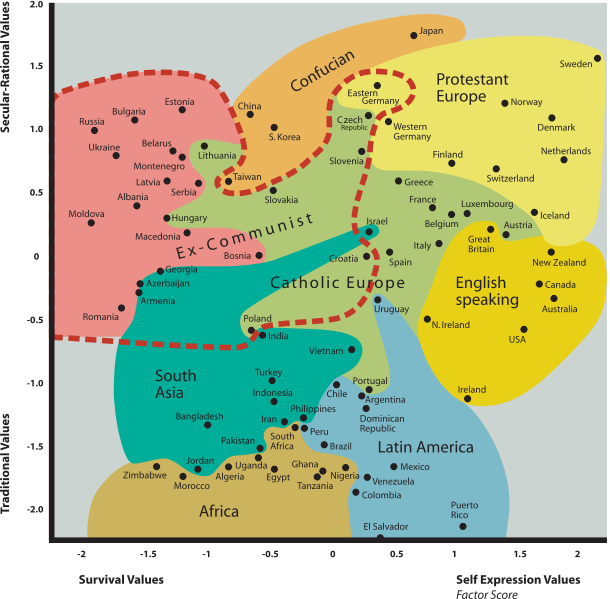Notes for panel The API Copyright Emergency: What’s Next? today at API Con SF. The “emergency” is the recent decision in Oracle v. Google, which I don’t discuss directly below, though I did riff on the ongoing case last year.
I begin with and come back to a few times Creative Commons licenses as I was on the panel as a “senior fellow” for that organization, but apart from such emphasis and framing, this is more or less what I think. I got about 80% of the below in on the panel, but hopefully still worth reading even for attendees.
A few follow-up thoughts after the notes.
…
Creative Commons licenses, like other public licenses, grant permissions around copyright, but as CC’s statement on copyright reform concludes, licenses “are not a substitute for users’ rights, and CC supports ongoing efforts to reform copyright law to strengthen users’ rights and expand the public domain.” In the context of APIs, default policy should be that independent implementation of an API never require permission from the API’s designer, previous implementer, or other rightsholder.
Without such a default policy of permission-free innovation, interoperability and competition will suffer, and the API community invites late and messy regulation at other levels intending to protect consumers from resulting lock-in.
Practically, there are things API developers, service providers, and API consumers can do and demand of each other, both to protect the community from a bad turn in default policy, and to go further in creating a commons. But using tools such as those CC provides, and choosing the right tools, requires looking at what an API consists of, including:
- API specification
- API documentation
- API implementations, server
- API implementations, client
- Material (often “data”) made available via API
- API metadata (e.g, as part of API directory)
(depending on construction, these could all be generated from an annotated implementation, or could each be separate works)
and what restrictions can be pertinent:
- Copyright
- Patent
(many other issues can arise from providing an API as a service, e.g., privacy, though those are usually not in the range of public licenses and are orthogonal to API “IP”, so I’ll ignore them here)
1-4 are clearly works subject to copyright, while 5 and 6 may or may not be (e.g., hopefully not if purely factual data). Typically only 3 and 4 might be restricted by patents.
Standards bodies typically do their work primarily around 1. Relatively open ones, like the W3C, obtain agreement from all contributors to the standard to permit royalty-free implementation of the standard by anyone, typically including a patent license and permission to prepare and perform derivative works (i.e., copyright, to extent such permission is necessary). One option you have is to put your API through an existing standards organization. This may be too heavyweight, or may be appropriate yet if your API is really a multi-stakeholder thing with multiple peer implementations; the W3C now has a lightweight community group venue which might be appropriate. The Open Web Foundation’s agreements allow you to take this approach for your API without involvement of an existing standards body​. Lawrence Rosen has/will talk about this.
Another approach is to release your API specification (and necessarily 2-4 to the extent they comprise one work, ideally even if they are separate) under a public copyright license, such as one of the CC licenses, the CC0 public domain dedication, or an open source software license. Currently the most obvious choice is the Apache License 2.0, which grants copyright permission as well as including a patent peace clause. One or more of the CC licenses are sometimes suggested, perhaps because specification and documentation are often one work, and the latter seems like a “creative” work. But keep in mind that CC does not recommend using its licenses for software, and instead recommends using an open source software licenses (such as Apache): no CC license includes explicit patent permission, and depending on the specific CC license chosen, it may not be compatible with software licenses, contrary to goal of granting clear permission for independent API implementation, even in the face of a bad policy turn.
One way to go beyond mitigating “API copyrightability” is to publish open source implementations, preferably production, though reference implementations are better than nothing. These implementations would be covered by whatever copyright and patent permissions are granted by the license they are released under — again Apache 2.0 is a good choice, and for software implementation CC licenses should not be used; other software licenses such as [A]GPL might be pertinent depending on business and social goals.
Another way to create a “thick” API commons is to address material made available via APIs, and metadata about APIs. There, CC tools are likely pertinent, e.g., use CC0 for data and metadata to ensure that “facts are free”, as they ought be in spite of other bad policy turns.
To get even thicker, consider the architecture, for lack of a better term, around API development, services, and material accessed and updated via APIs. Just some keywords: Linked Open Data, P2P, federation, Lots of Copies Keep Stuff Safe, collaborative curation.
…
The other panelists were Pamela Samuelson, Lawrence Rosen, and Annette Hurst, moderated by David Berlind.
I’m fairly familiar with Samuelson’s and Rosen’s work and don’t have comments on what they said on the panel. If you want to read more, I recommend among Samuelson’s papers The Strange Odyssey of Software Interfaces and Intellectual Property Law which shows that the “API copyright emergency” of the panel title is recurrent and intertwined with patent, providing several decades of the pertinent history up to 2008. Contrary to my expectation in the notes above, Rosen didn’t get a chance to talk about the Open Web Foundation agreements, but you can read his 2010 article Implementing Open Standards in Open Source which covers OWF.
Hurst is a lawyer for Orrick representing Oracle in the Oracle v. Google case, so understandably advocated for API copyright, but in the process made several deeply flawed assertions could have consumed the entire duration of the panel, but Berlind did a good job of keeping the conversation moving forward. Still, I want to mention two high level ones here, my paraphrases and responses:
Without software copyright the software economy would go away. This is refuted by software development not for the purposes of selling licenses (which is the vast majority of it), especially free/open source software development, and services (e.g., API provision, the source of which is often never published, though it ought be, see “going beyond” recommendations above). Yes the software economy would change, with less winner-take-all monopoly and less employment for Intellectual Parasite lawyers. But the software economy would be huge and very competitive. Software is eating the world, remember? One way to make it help rather than pejoratively eat the world is to eject the parasites along for the ride.
Open source can’t work without software copyright. This is refuted by 1) software source sharing before software copyright; 2) preponderance of permissively licensed open source software, in which the terms do not allow suing downstream developers who do not share back; 3) the difficulty of enforcing copyleft licenses which do allow for suing downstream developers who do not share back; 4) the possibility of non-copyright regulation to force sharing of source (indeed I see the charitable understanding of copyleft as prototyping such regulation; for perspective on the Oracle v. Google case from someone with a more purely charitable understanding of copyleft, see Bradley Kuhn); and 5) demand and supply mechanisms for mandating sharing of source (e.g., procurement policies, distribution policies such as Debian’s).
These came up because Hurst seemed to really want the audience to conflate software copyright in general (not at issue in the case, settled in a bad place since the early 1980s) and API copyright specifically. Regarding the latter, another point which could have been made is the extent to which free/open source software has been built around providing alternatives to proprietary software, often API-compatible. If API copyright could prevent compatible implementation without permission of any sort, open source, competition, and innovation would all be severely hampered.
…
There is a recent site called API Commons, which seems to be an API directory (Programmable Web, which ran the conference, also has one). My general suggestion to both would be to implement and facilitate putting all elements of APIs listed above in my notes in the commons. For example, they could clarify that API metadata they collect is in the public domain, publish it as Linked Open Data, and encourage API developers and providers they catalog to freely license specifications, documentation, implementations, and data, and note such in the directories.
…
In order to get a flavor for the conference, I listened to yesterday morning’s keynotes, both of which made valiant attempts to connect big picture themes to day to day API development and provision. Allow me to try to make connections back to “API commons”.
Sarah Austin, representing the San Francisco YMCA, pointed out that the conference is near the Tenderloin neighborhood, the poorest in central San Francisco. Austin asked if kids from the Tenderloin would be able to find jobs in the “API economy” or would they be priced out of the area (many tech companies have moved nearby in the last years, Twitter perhaps the best known).
Keith Axline claimed The Universe Is Programmable. We Need an API for Everything, or to some extent, that learning about the universe and how to manipulate it is like programming. Axline’s talk seemed fairly philosophical, but could be made concrete with reference to the Internet of Things, programmable matter, robots, nanobots, software eating the world … much about the world will indeed soon be software (programmable) or obsolete.
Axline’s conclusion was in effect largely about knowledge policy, including mourning energy wasted on IP, and observing that we should figure out public support for science or risk a programmable world dominated by IP. That might be part of it, but keeps the focus on funding, which is just where IP advocates want it — IP is an off-the-balance-sheets, “free” taking. A more direct approach is needed — get the rules of knowledge policy right, put freedom and equality as its top goals, reject freedom infringing regimes, promote commons (but mandating all these as a condition of public and publicly interested funding is a reasonable starting place) — given these objectives and constraints, then argue about market, government, or other failure and funding.
Knowledge policy can’t directly address the Austin’s concerns in the Tenderloin, but it does indirectly affect them, and over the long term tremendously affect them, in the Tenderloin and many other places. As the world accelerates its transition from an industrial to a knowledge dominated economy, will that economy be dominated by monopoly and inequality or freedom and equality? Will the former concentrations continue to abet instances of what Jane Jacobs called “catastrophic money” rushing into ill-prepared neighborhoods, or will the latter tendencies spread the knowledge, wealth, and opportunity?
 I really enjoyed
I really enjoyed 

